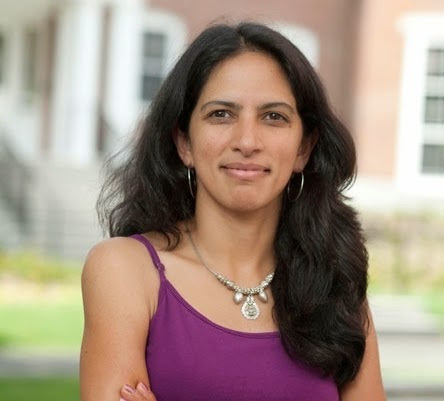
Time: Wednesday June 22, 09:00 - 10:00
Location: Rackham Auditorium
Title: Collective "Artificial" Intelligence
Abstract: In nature, groups of thousands to millions of individuals can cooperate to create complex structure purely through local interactions -- from cells that form complex organisms, to social insects like termites that build meter-high mounds and army ants that self-assemble into bridges and nests, to the complex and mesmerizing motion of fish schools and bird flocks. What makes these systems so fascinating to scientists and engineers alike, is that even though each individual has limited ability, as a collective they achieve tremendous complexity.
What would it take to create our own artificial collectives of the scale and complexity that nature achieves? In this talk I will discuss several different projects from our group that use inspiration from biological collectives to create robotic systems: the Termes collective construction robots, inspired by the mound-building African termites, the Kilobot swarm, our first "colony" of a thousand programmable robots, and some newer robotic collectives under development. There are many challenges for both building and programming robot swarms, and we use these systems to explore decentralized algorithms, embodied intelligence, and methods for synthesizing complex global behavior. Our theme is the same: can we create simple robots that cooperate to achieve collective complexity?
Biography: Radhika Nagpal is the Kavli Professor of Computer Science at Harvard University and a core faculty member of the Wyss Institute for Biologically Inspired Engineering. At Harvard, she leads the Self-organizing Systems Research Group (SSR) and her research interests span computer science, robotics, and biology. Projects from her group include robot swarms (Termes, Kilobots, Robobees), programming methodologies for collectives (Amorphous Computing), and models of biology (cell networks, social insects). Her awards include the Microsoft New Faculty Fellowship (2005), NSF Career Award (2007), Borg Early Career Award (2010), Radcliffe Fellowship (2012), and the McDonald Mentoring Award (2015). Recently Radhika was named by Nature magazine as one of the top ten influential scientists and engineers of the year (Nature 10 award, Dec 2014), and her group's work ("cooperative robots need no boss") was chosen by as one of the top ten breakthroughs by Science magazine the same year.
Radhika is also the author of a Scientific American blog article on tenure-track life ("the Awesomest 7-year postdoc", 2013), and an advocate for a more inclusive and nurturing culture in science. In addition to creating new robots with her research group, she enjoys painting, dancing, and celebrating her family's indian and carribean cultures.